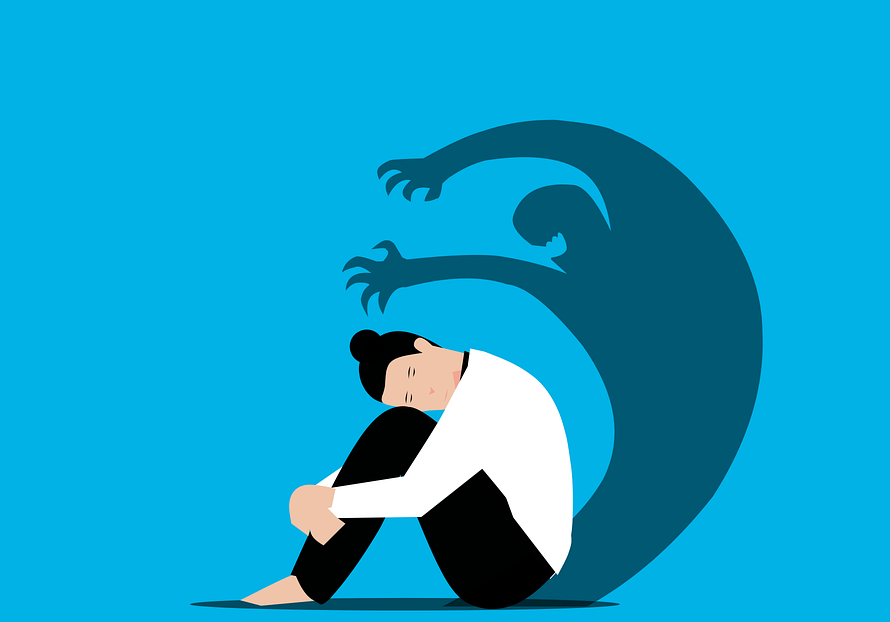What is Anxiety?
Anxiety is a normal, natural response to stress. For example, if you were walking in the wilderness and you heard a sound behind you, your body naturally creates a surge of adrenaline so that you can fight or flee potential danger. This feeling of nervousness usually goes away quickly as soon as the perceived danger has passed.
Anxiety becomes a problem when it is constant or overwhelming, interfering with your everyday life and ability to function. Panic attacks are caused by anxiety. If you want to learn more about panic attacks and how to get rid of them click here
What is Trauma?
Trauma is a severe emotional shock that can be caused by a dangerous or life-threatening event, a serious injury, the sudden death of someone close to you, being taken hostage, torture, imprisonment, or sexual assault. Examples include, natural disasters such as an earthquake or tsunami; manmade disasters such as war and famine; terrorism; accidents such as car or plane crashes; consequences of someone’s criminal act such as assault or kidnapping; medical episodes such as heart attack or childbirth.
There are several types of anxiety disorders:
Generalized Anxiety Disorder (GAD)
Is when there is persistent ongoing worrying and anxiety. The person may feel irritable; They may have trouble concentrating and sleeping. They can’t relax and are always on edge. Anxiety can be so severe that it causes physical symptoms such:
Symptoms:
- Restlessness or feeling keyed up or on edge
- Headaches
- Cramps
- Nausea.
- Being easily fatigued
- Having difficulty concentrating or having their mind go blank
- Having difficulty controlling the worry
- Worrying about sleep and becoming overly anxious about sleep, causing them to lose sleep.
One becomes distracted, worries and has trouble focusing on any one thing
The root cause of Generalized Anxiety Disorder varies for every individual. It could be a part of another disorder such as depression or alcoholism, or it can stand alone.
The condition can also run in families and may be caused by an imbalance of certain brain chemicals called neurotransmitters.
GAD is diagnosed when a person has been excessively worried about several different things for at least 6 months. They must show at least 3 of the following physical or emotional signs:
- Muscle tension
- Concentration problems
- Irritability
- Fatigue
- Difficulty controlling worry and anxiety causing disruptive life patterns
If you are struggling with any of the symptoms above, know that you are alone; so many of us are challenged by the aftermath of anxiety and trauma. Don’t be afraid to seek out support.
Social Anxiety Disorder
People with social phobia have a fear of being humiliated in public. This is the fear of social situations due to feeling judged and embarrassed. In small children, it can result in extreme shyness. In teens and adults, it may be expressed as avoidance of physical contact such as shaking hands or being hugged, eye contact held too long, talking too much or too loudly, speaking quickly when nervous, or being overly critical of oneself.
Symptoms:
- Inability to relax in social settings due to constantly feeling on edge
- Avoiding activities involving social interactions
- Feeling extremely self-conscious and embarrassed in front of others
- Worrying for days or weeks before an event where they will be around other people. They may also plan and obsess about what might happen at the event.
If you are struggling with any of the symptoms above, know that you are alone; so many of us are challenged by the aftermath of anxiety . Don’t be afraid to seek out support.
Posttraumatic stress disorder (PTSD)
This type of anxiety comes from a traumatic experience such as war, natural disaster, assault, or abuse. PTSD can develop immediately after a trauma or years later. Symptoms include bad dreams, frightening thoughts and memories of the event, and feeling emotionally numb. This can cause problems at work or in relationships.
Symptoms:
- Experiencing the traumatic event again while awake (flashbacks)
- Being unable to stop thinking about the Trauma
- Avoiding situations that remind you of the Trauma
- Feelings of detachment or estrangement from others
- Negative thoughts about self or other people
- Irritability or angry outbursts
- Hypervigilance, always being on guard for danger
- Nightmares. A constant need to be on guard, watchful, and on the lookout for signs of danger. Trouble concentrating due to constant need to look out for danger.
What is the relationship between Trauma and anxiety?
There’s a strong connection between Trauma and anxiety. Sometimes people will feel anxious if they imagine experiencing something traumatic or believe that it may happen in the future. In other cases, memories of past traumatic events can be so vivid, and they often cause people to feel anxious in the moment.
Difference between generalized anxiety and complex anxiety?
Generalized Anxiety Disorder is a condition where a person experiences excessive worry over a long period about many different things. It can be related to several issues that a person may encounter daily, such as work or school, health, family, and finances.
Differences between complex anxiety which is called Trauma; defined as Posttraumatic stress disorder (PTSD)? Complex PTSD is a type of anxiety disorder that occurs after exposure to prolonged traumatic circumstances such as childhood neglect and abuse. It can include symptoms such as depression and changes to the brain and nervous system. Complex PTSD differs from PTSD in several ways:
The cause is often interpersonal and involves harm or abandonment by a caregiver. People living with complex PTSD describe feeling like they have been chronically betrayed, resulting in intense emotional responses such as anger, disgust, and fear. They also experience physical symptoms from these emotions, including nausea, cold sweats, and tense muscles.
Dissociation is a commonly misunderstood symptom related to severe Trauma. People living with complex PTSD may experience dissociation more often and with greater intensity than those who have PTSD. A person experiencing dissociation might feel like they are watching themselves from outside their body or that time has slowed down or sped up.
Conclusion:
There’s a strong connection between Trauma and anxiety. Sometimes people will feel anxious if they imagine experiencing something traumatic or believe that it may happen in the future. In other cases, memories of past traumatic events can be so vivid, and they often cause people to feel anxious in the moment. Different types of anxiety disorders can cause severe and debilitating side effects for those who experience them.
If you are or have experienced any of the above challenges described above, know that your wellness matters, because you matter. And putting yourself means seeking the support and resources you need to nurture the many different parts of your life. Click here to access professional support, from licensed mental health practitioners. If you are not there yet, but just need to have someone on your side, feel free to contact me.


